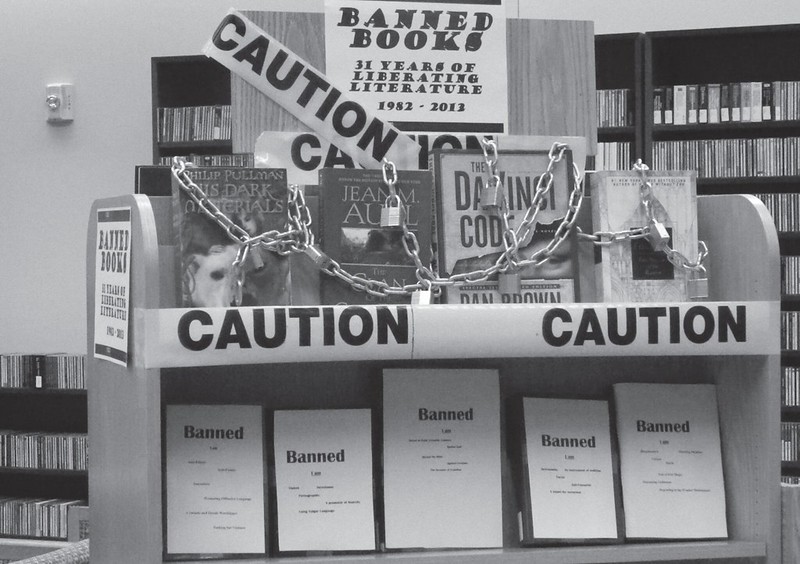
What do “Where’s Waldo?” “The Giving Tree” and “Green Eggs and Ham” have in common? They are all classic children’s books and they have all been banned somewhere in America. A banned book is a book that is not freely accessible. Banning books is a practice of censorship, controlling who has access to specific literature. As Orwellian as it sounds, the Office for Intellectual Freedom, the agency that handles complaints about unsuitable books, heard at least 464 complaints in 2012 for books people sought to ban.
The process of banning a book begins with a challenge, a member of the community makes their case to a community board and, depending on the verdict, the book can be removed from local libraries, schools or bookstores. Other ways to restrict access to material can be employed if the attempt to ban is ineffective, such as permanently checking a book out from a library so that no one else can read it. On a larger scale, the government can restrict which books by foreign authors can be imported and distributed because freedom of speech laws are only meant to protect citizens from censorship within the country.
Books can be banned for a variety of reasons. The five most commonly
cited reasons for banning a book are: sexually explicit content, offensive language, violence, homosexuality or unsuitable content for the age group. Bans can happen for other seemingly harmless reasons though, such as Katherine Paterson’s “Bridge to Terabithia,” required reading in some elementary school classrooms, was banned for having too elaborate a fantasy world that could confuse children.
New College’s Jane Bancroft Cook Library has never banned a book. In celebration of Banned Books Week, a nationwide awareness campaign which this year runs from Sept. 22-28, the library displayed commonly banned books in chains with the reason for their banning shown on the cover. The books shown are surprising, even the dictionary is on display.
“It was actually banned in an elementary school because a parent saw that their child could look up the definition of oral sex,” Barbra Dubreuil, New College librarian, said. “The parents wanted it removed from the elementary school library for being age-inappropriate.”
As if banning the dictionary wasn’t enough, one school district has banned a whole series, including the last book which has not yet been written. The Stephenville Independent School District in Texas has banned Richelle Mead’s “Vampire Academy” series prior to the release of the fifth book and the writing of the sixth.
While it is a new phenomenon for books to be banned before even making their way onto paper, it is not unusual for the proponents of bans to have not read the books they are protesting.
“The majority of books that are banned were never read by the people trying to ban them,” Dubreuil said.
Though there are some books that parents would feel uncomfortable with their children reading, like “Fifty Shades of Grey,” which has been banned in three states, the American Library Association (ALA) does not believe that such works should be banned.
An extension of the Library Bill of Rights, the ALA’s policy outline, reads, “Librarians and governing bodies should maintain that parents – and only parents – have the right and the responsibility to restrict the access of their children – and only their children – to library resources.”
“It’s a parent’s right and duty when raising their kid, if they don’t want them exposed to this or that, to stop it,” Dubreuil agreed. “That’s what you do as a parent.”
There are ways to fight back against parents that take control of materials outside of their own home and into the community. Banned Books Week is one way to draw attention to the issue of censorship in modern America. The first step to fighting censorship is realizing that it takes place, and that is the goal of Banned Books Week at New College and across the nation.
For students that want to get involved beyond examining the displays available at the library, there are options. Interested individuals can contact local libraries or school districts to make cases for any books in the process of being challenged. Explaining why “The Lorax” is important to education and growth, even if it does slander logging companies (the reason it was banned in a California school district), could make all the difference in keeping it on the shelves.
